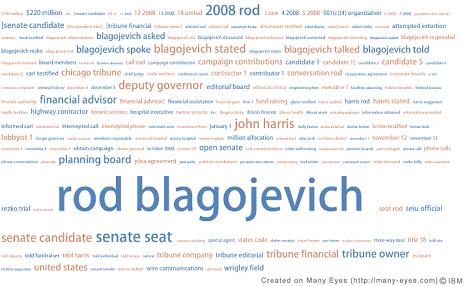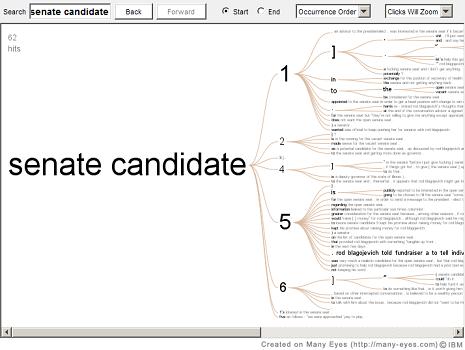Not sure what a Ponzi scheme is? Or a pyramid scheme? What about a pump and dump, a jitney game, a bucket shop, or front running? Slate‘s explainer answers those questions, but what we really need for today’s world is something a little more thorough, like “Diddling Considered as one of the Exact Sciences,” a look at the scams of the 1840s by that famous economics journalist, Edgar Allen Poe (you may remember him from such works as “The Mortgages in the Rue Morgue,” “The Purloined Debtor,” and “A Scheme within a Scheme”).
Diddling, rightly considered, is a compound, of which the ingredients are minuteness, interest, perseverance, ingenuity, audacity, nonchalance, originality, impertinence, and grin.
Minuteness: — Your diddler is minute. His operations are upon a small scale. His business is retail, for cash, or approved paper at sight. Should he ever be tempted into magnificent speculation, he then, at once, loses his distinctive features, and becomes what we term “financier.” This latter word conveys the diddling idea in every respect except that of magnitude. A diddler may thus be regarded as a banker in petto — a “financial operation,” as a diddle at Brobdignag. The one is to the other, as Homer to “Flaccus” — as a Mastodon to a mouse — as the tail of a comet to that of a pig.
Interest: — Your diddler is guided by self-interest. He scorns to diddle for the mere sake of the diddle. He has an object in view — his pocket — and yours. He regards always the main chance. He looks to Number One. You are Number Two, and must look to yourself….
There follows a list of diddles, mostly small-scale – furniture sellers tricked, pocketbooks supposedly lost, promissory notes eaten by dogs, fake robberies foiled, and so on – but ending with one quite a bit more ambitious:
But as there is really no end to diddling, so there would be none to this essay, were I even to hint at half the variations, or inflections, of which this science is susceptible. I must bring this paper, perforce, to a conclusion, and this I cannot do better than by a summary notice of a very decent, but rather elaborate diddle, of which our own city was made the theatre, not very long ago, and which was subsequently repeated with success, in other still more verdant localities of the Union. A middle-aged gentleman arrives in town from parts unknown. He is remarkably precise, cautious, staid, and deliberate in his demeanor. His dress is scrupulously neat, but plain, unostentatious. He wears a white cravat, an ample waistcoat, made with an eye to comfort alone; thick-soled cosy-looking shoes, and pantaloons without straps. He has the whole air, in fact, of your well-to-do, sober-sided, exact, and respectable “man of business,” par excellence — one of the stern and outwardly hard, internally soft, sort of people that we see in the crack high comedies — fellows whose words are so many bonds, and who are noted for giving away guineas, in charity, with the one hand, while, in the way of mere bargain, they exact the uttermost fraction of a farthing with the other.
He makes much ado before he can get suited with a boarding-house. He dislikes children. He has been accustomed to quiet. His habits are methodical — and then he would prefer getting into a private and respectable small family, piously inclined. Terms, however, are no object — only he must insist upon settling his bill on the first of every month, (it is now the second) and begs his landlady, when he finally obtains one to his mind, not on any account to forget his instructions upon this point — but to send in a bill, and receipt, precisely at ten o’clock, on the first day of every month, and under no circumstances to put it off to the second.
These arrangements made, our man of business rents an office in a reputable rather than a fashionable quarter of the town. There is nothing he more despises than pretence. “Where there is much show,” he says, “there is seldom anything very solid behind” — an observation which so profoundly impresses his landlady’s fancy, that she makes a pencil memorandum of it forthwith, in her great family Bible, on the broad margin of the Proverbs of Solomon.
The next step is to advertise, after some such fashion as this, in the principal business sixpennies of the city — the pennies are eschewed as not “respectable” — and as demanding payment for all advertisements in advance. Our man of business holds it as a point of his faith that work should never be paid for until done.
WANTED — The advertisers, being about to commence extensive business operations in this city, will require the services of three or four intelligent and competent clerks, to whom a liberal salary will be paid. The very best recommendations, not so much for capacity, as for integrity, will be expected. Indeed, as the duties to be performed, involve high responsibilities, and large amounts of money must necessarily pass through the hands of those engaged, it is deemed advisable to demand a deposit of fifty dollars from each clerk employed. No person need apply, therefore, who is not prepared to leave this sum in the possession of the advertisers, and who cannot furnish the most satisfactory testimonials of morality. Young gentlemen piously inclined will be preferred. Application should be made between the hours of ten and eleven A. M., and four and five P. M., of Messrs.
BOGS, HOGS, LOGS, FROGS, & Co.
No. 110 Dog Street.
By the thirty-first day of the month, this advertisement has brought to the office of Messrs. Bogs, Hogs, Logs, Frogs and Company, some fifteen or twenty young gentlemen piously inclined. But our man of business is in no hurry to conclude a contract with any — no man of business is ever precipitate — and it is not until the most rigid catechism in respect to the piety of each young gentleman’s inclination, that his services are engaged and his fifty dollars receipted for, just by way of proper precaution, on the part of the respectable firm of Bogs, Hogs, Logs, Frogs, and Company. On the morning of the first day of the next month, the landlady does not present her bill, according to promise — a piece of neglect for which the comfortable head of the house ending in ogs, would no doubt have chided her severely, could he have been prevailed upon to remain in town a day or two for that purpose.
As it is, the constables have had a sad time of it, running hither and thither, and all they can do is to declare the man of business most emphatically, a “hen knee high” — by which some persons imagine them to imply that, in fact, he is n. e. i. — by which again the very classical phrase non est inventus, is supposed to be understood. In the meantime the young gentlemen, one and all, are somewhat less piously inclined than before, while the landlady purchases a shilling’s worth of the best Indian rubber, and very carefully obliterates the pencil memorandum that some fool has made in her great family Bible, on the broad margin of the Proverbs of Solomon.



